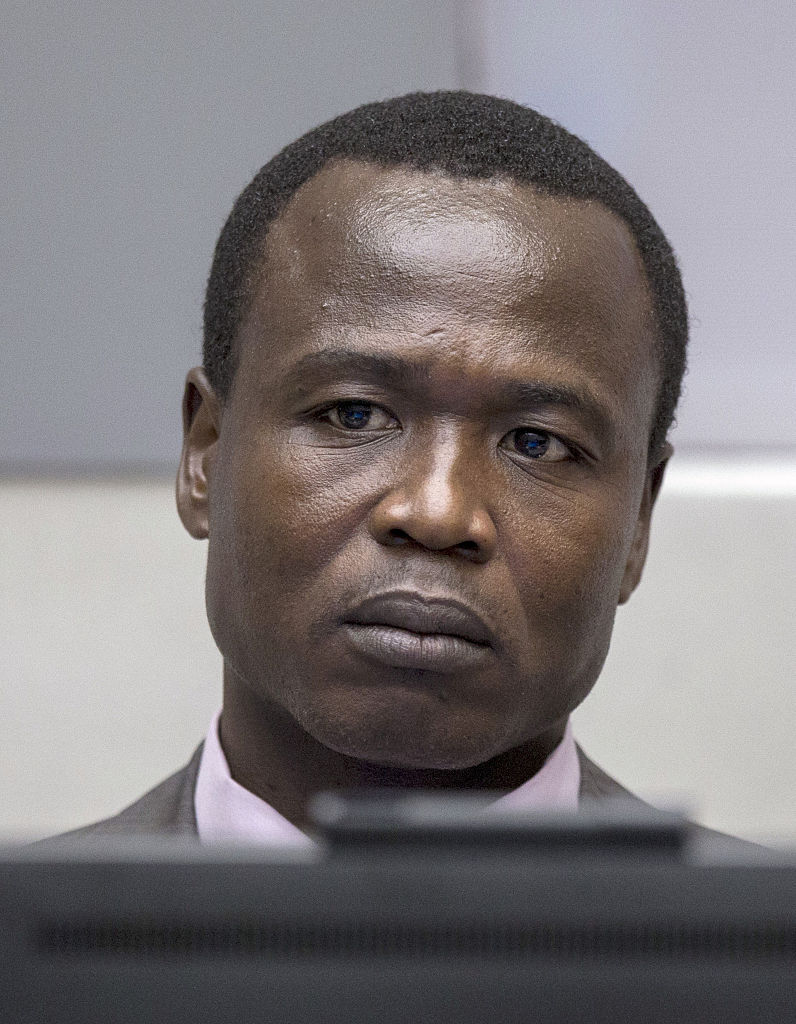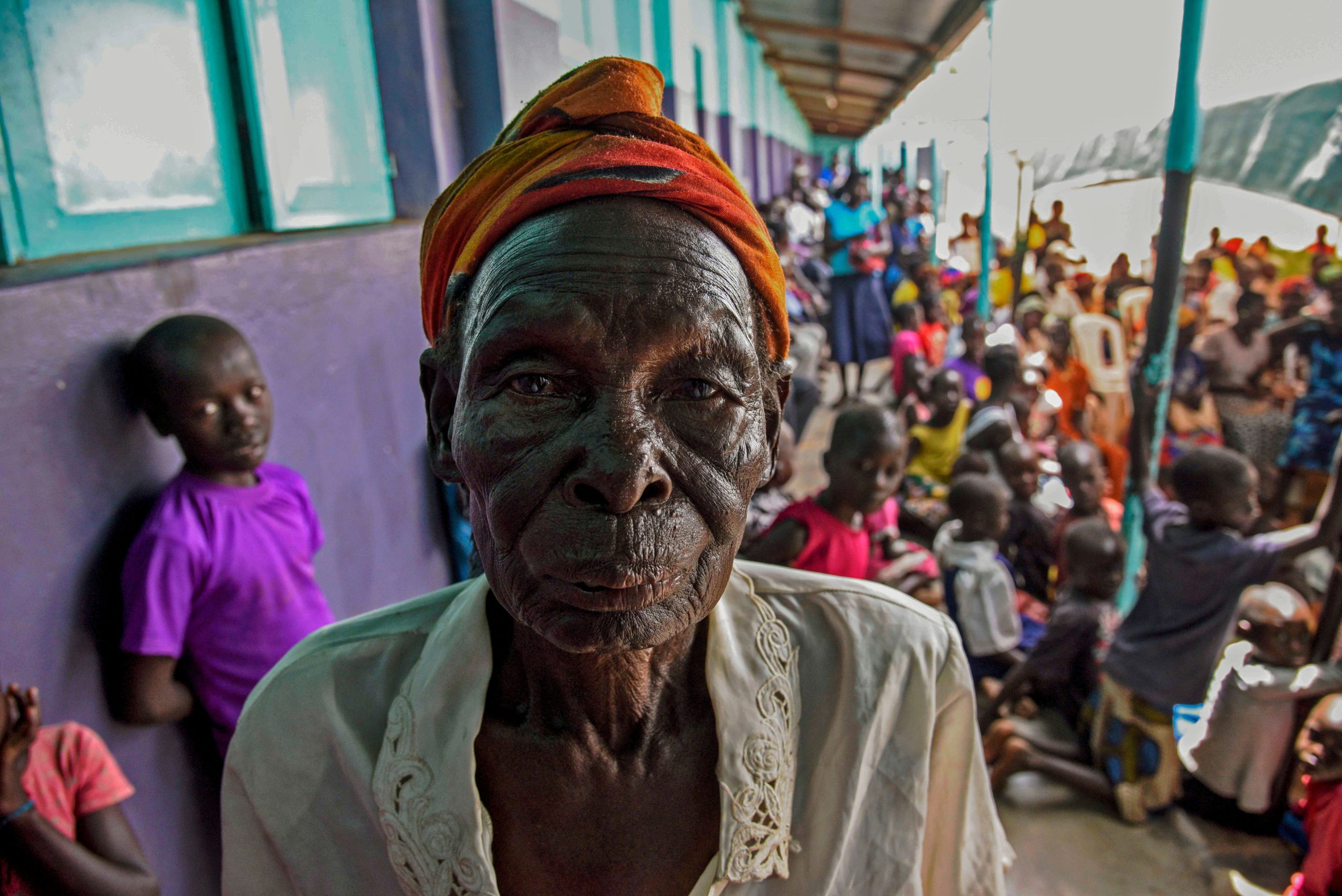GULU, Uganda—In her office in Gulu, an impoverished city in northern Uganda, Stella Angel Lanam is worried about eviction. She is the founder and director of the War Victims and Children Network, an organization that helps women who, like her, were abducted during Uganda’s lengthy war and forced to become wives to rebel fighters and mothers to children born out of rape. These days, she’s simply struggling to pay rent. “Ever since we came back home, we did not get the support,” she said.
Uganda’s former decadeslong conflict came under the spotlight last month when the International Criminal Court (ICC) reached a verdict against Dominic Ongwen, a former child soldier-turned-commander in the Lord’s Resistance Army (LRA). The rebel group was headed by Joseph Kony, whose brutality was infamously depicted in the short documentary Kony 2012, which was produced by an American charity and went massively viral.
Ongwen was convicted on 61 charges of war crimes and crimes against humanity, including the first ICC conviction for forced marriage and the first conviction for forced pregnancy at any international court. The presiding judge, Bertram Schmitt, ruled that Ongwen had personally attacked seven women and coerced others to marry and have sexual relations with men under his command, calling these actions a “coordinated and methodical effort” to commit sexual and gender-based crimes and emphasizing the role of sexual violence in the conflict.
Human rights groups hailed the decision as a milestone in the fight against impunity for sexual crimes. But in northern Uganda, it’s hard to find much enthusiasm for the verdict among survivors who are grappling with poverty, stigma, and the total absence of government support.
LRA atrocities included forced marriage, pregnancy for abducted girls
Between the late 1980s and mid-2000s, tens of thousands of children were abducted by the LRA. The boys were indoctrinated and turned into fighters. Girls were assigned as so-called wives and threatened with murder if they tried to get away. “The abuse of women and girls in the LRA was truly systemic and institutional,” Schmitt said.
But he also acknowledged another unsettling reality: Forced marriage and pregnancy can have “complex emotional and psychological effects” on survivors, who, despite their lack of consent, may feel “bonded” to their abusers.
And many of the women Ongwen targeted are less worried about a proclamation of guilt in some faraway court than they are about scrabbling for money to buy food, finding shelter, paying their children’s school fees, and generally trying to survive—worries they have had ever since leaving the LRA.
Over the past few years, during interviews I’ve done with dozens of women who were kidnapped and forced into such “marriages” in the bush, most said they received little or no help once they escaped, and they were given no government compensation. Without an education or skills, they aren’t able to earn a living. Many say this is a key reason why they face so much stigma; they could have been welcomed back by their families if they weren’t a financial burden. Most women viewed the men in the rebel group as victims, too. The majority did not want Ongwen to be charged or sentenced. One of Ongwen’s so-called wives, Dilis Abang, said she is worried about what will happen to their children if the man she still calls her husband is unable to support them.
Case against Ongwen was contentious
Sarah Kihika Kasande, the head of the Uganda office of the International Center for Transitional Justice, an organization that seeks accountability for human rights abuses in post-conflict countries, said the ICC verdict was significant because it looked at the “full spectrum of sexual crimes and other atrocities that the people experienced and their lasting impact.”
“Forced motherhood was a defining feature of the conflict,” she said. “Young women were forced not only to be sexual slaves … but to give birth to children who would be groomed to become child soldiers.”
But she also recognized that the case against Ongwen has been contentious, tracing some of the controversy back to a government amnesty program that encouraged LRA fighters to defect and be welcomed back to their communities. The program, Kasande said, did not take into account the gendered needs of escapees. While male defectors were invited to join the Ugandan military and draw a salary, women were effectively left with nothing. “The aspect of sexual violence is not the immediate concern [for the women],” she said. ”It is the consequence of the sexual violence.” Survivors still live with trauma, suffer from medical problems, and have children to support.
The last few decades have seen growing efforts around the globe to remove impunity for sexual crimes in war. The Rome Statute, which established the ICC, was one of the first international treaties to list conflict-related sexual and gender-based crimes as crimes against humanity and war crimes, while expanding what could be prosecuted. “[It’s] dizzying to think of how many people endured the indignity and pain of being forced to become pregnant, or [were] forced to remain pregnant, or forced to give birth, before states eventually decided in 1998 to make forced pregnancy a crime under international law,” tweeted Rosemary Grey, an academic focusing on international criminal law and gender, following the Ongwen verdict.

Despite the legal framework being in place, prosecuting cases is fraught with “inherent challenges and unanticipated delays,” according to a spokesperson for the Office of the Prosecutor of the ICC. “Mr Ongwen managed to evade justice for a decade after the ICC issued an arrest warrant for him in 2005.” After he was apprehended, it took 15 months for the prosecution to present its evidence, followed by presentations from survivors’ representatives and Ongwen’s defense, which lasted roughly another 15 months.
In the 19 years since the ICC’s founding, only five people have ever been convicted for war crimes and crimes against humanity. Of those, three included initial convictions for sexual violence. The first, against Congolese politician Jean-Pierre Bemba Gombo, didn’t occur until 2016 and was later overturned. Judges said Gombo could not be held responsible for the actions of troops under his control. Three years later, in 2019, Congolese military leader Bosco Ntaganda was convicted of rape and sexual slavery, but his case is currently under appeal. Ongwen is also expected to appeal. “When it comes to convictions, it is important to note that the verdict at trial, albeit significant, is not the end of the process,” the ICC spokesperson said.
Globally, there was a boost in awareness of sexual and gender-based violence when the 2018 Nobel Peace Prize went jointly to Nadia Murad, an activist and Yazidi survivor of sexual slavery, and Denis Mukwege, a Congolese gynecologist who has treated tens of thousands of women in the conflict-wracked region of eastern Democratic Republic of the Congo. Still, activists and survivors’ representatives say much more needs to be done.
Katrien Coppens, the director of the Mukwege Foundation, which advocates for an end to sexual violence as a weapon of war and supports survivors, said that while high-profile convictions send a message about the gravity of these crimes, they are “not more than a first step.” Even with a guilty verdict, compensation for survivors is not guaranteed. The court may order reparations for women in the Ongwen case, but the process could take years. Meanwhile, thousands of other survivors of rape, sexual slavery, forced marriage, or forced pregnancy who never got the chance to participate in a justice process also need help. Coppens pointed to the Global Survivors Fund, recently founded by Mukwege and Murad, as an important attempt to fill those gaps. It aims to make at least $50 million available for survivors of conflict-related sexual violence by 2022.
‘We don’t want to be ashamed’: Survivors still face stigma back home
Many LRA survivors blame the government for what happened to them. “I was a young girl,” said Lanam, who was 10 years old when she was kidnapped by the LRA. “The government didn’t protect me.” During northern Uganda’s war, the Ugandan army was also accused of raping women in camps for displaced people, charges that were never investigated or brought to trial. Yoweri Museveni, the former rebel leader who seized power in 1986, is still president today.
“The pain we got in the bush to now—it will always remain,” said Ellen Awma. “We will remember for the rest of our lives.” The 35-year-old was kidnapped in 1993, when she was just 9 years old, and forced to “marry” an LRA commander the same year. In 2004, she escaped with four children. She has been rejected by both her family and his.
Santa Aber, 40, is another survivor who was made to live in the bush for 11 years and came back with a daughter. She was rejected by her relatives.
“I don’t want to be ashamed,” Aber said. She sat on the ground—a bullet wound in her back means she can’t stay in chairs for a long time—and reiterated the need for support for the women who survived. “This thing spoiled our future,” she said, wondering where all the “good Samaritans” are when it comes to providing survivors with tangible support. Ongwen’s conviction means little to Aber, who struggles to buy even basic necessities. “There’s been no international help,” she said. “Maybe the world can focus on that.”


 Sally Hayden
Sally Hayden
